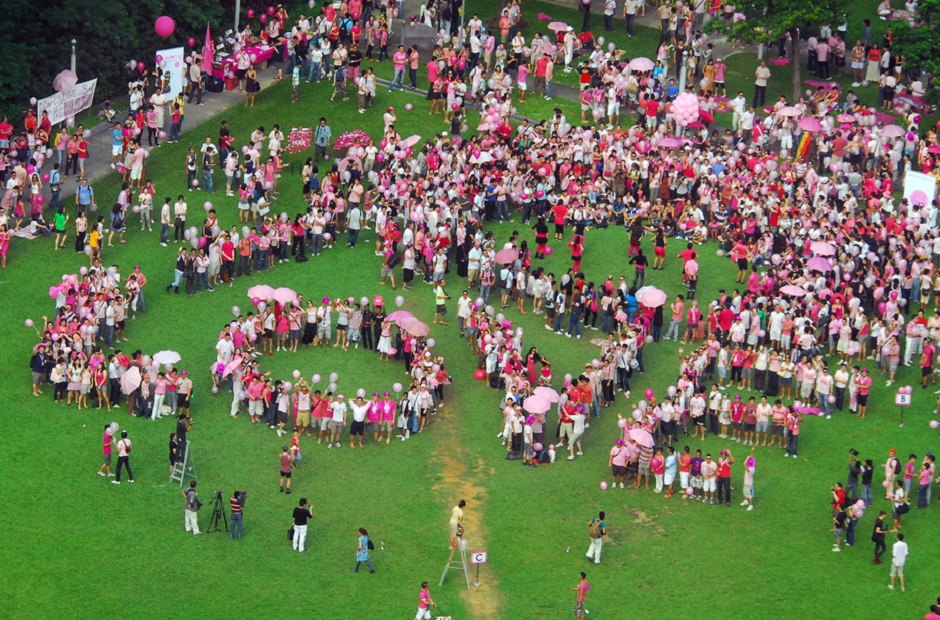LATE in October, Singapore’s Ministry of Home Affairs (MHA) reiterated rules that “Foreigners will need a permit if they organise or participate in an event at the Speakers’ Corner.” This includes sponsorship and promotion of events, as well as the amendment to include speaking through remote means.
These amendments to the Public Order (Unrestricted Area) Order 2016, which will come into effect on Tuesday, are designed to “reinforce the key principle that the Speakers’ Corner was set up primarily for Singaporeans.”
Launched in 2000, Speakers’ Corner is an area located within Hong Lim Park in downtown Singapore where citizens and permanent residents may demonstrate and speak freely on topics mostly free from government restriction. As this behaviour is highly regulated in other parts of the country, Speakers’ Corner is seen by many as playing an integral part in the widening of political and social discourse.
After receiving criticism for their restrictions on foreign entities in June, the Government stressed that it was not an attempt to hinder the country’s ability to learn from others or to close Singapore off from foreign views, but to prevent organisations from actively supporting divisive social issues in the public sphere.
In a letter to the Straits Times, Director of Information Planning and Strategy, Ms Lee May Lin, stressed that learning from others could not be regulated in our modern and interconnected world and that the legislation was put in place purely to reinforce the Government’s belief that “the right to decide on sensitive social and political matters in Singapore should be reserved for Singaporeans”.
While foreign entities are still able to apply for a permit, comments from Home Affairs and Law Minister K Shanmugam this month point towards the Government being more restrictive on those supporting controversial causes.
SEE ALSO: Singapore tells ‘foreign’ corporate sponsors to stop supporting LGBT event
“The foreigners can take part in the events with a permit, but we will have to look at the kind of events”, Mr Shanmugan said. He goes on to explain that the authorities will “try to be accommodating” when approving permits “unless it is really something that has the potential to really rile up opinion on both sides” or supports “causes where Singaporeans are sharply divided in their opinions”.
As the review of the rules was prompted by the Pink Dot 2016 event, an annual event in support of the LGBT community, these comments give a clear indication that, due to Government restrictions, this event and other contentious events will no longer be receiving the financial backing once afforded to them from international organisations.
With this legislation to prevent passive foreign sponsorship, Singapore runs the risk of not just stymieing the voice of foreigners but those of their own people too. By pulling funding for the more marginal and progressive events, Singapore risks losing them all together and with them the opportunity for crucial and necessary social debate.

Participants of the Pink Dot rally gather and form the word ‘Love’ at the speakers corner. Pic: AP
It is not foreign companies or even foreign people speaking at these events, it is Singaporeans with an important message. In the case of the Pink Dot, their sponsors are some of the world’s biggest super powers in industry; they count amongst them Google, J. P. Morgan, Goldman Sachs, BP, Bloomberg, Twitter, Apple, Facebook and Microsoft. Now, no one can claim these to be vulnerable entities in need of a platform, but the important point is that they support and give voice to those people that do. Without the funding from these sources, events may be unable to go ahead thereby preventing those voices from ever being heard.
The Government stresses that it does not wish to censor the messages of these events, merely regulate foreign support. In keeping with this, Singaporean entities, such as local companies and non-governmental organisations, are able to sponsor events without need for a permit. Whether this will be able to generate as much support for the more unconventional events is yet to be seen. But it is possible that they may be more reluctant than their international counterparts to make their voice heard on controversial issues.
But if the Government is genuine in its desire to avoid censorship, does it matter where the funding comes from? If Singaporean voices are being heard on issues that impact Singaporean citizens, surely it has the full support of the Government; so why risk curtailing it with pointless regulation?
To limit permits to only those topics the Government deems appropriate sets a dangerous precedent. The issues that “rile up opinion” are exactly the topics that we should be discussing. The causes that people are most passionate about are usually the ones of greatest importance. They need to be aired openly and discussed without reproach in the hope of triggering public debate. Without this open interaction our views will never be challenged, we will never have the chance to learn from others and we will never grow as a society.
These views may not always be popular, and they may cause some uncomfortable feelings for many, but they need to be heard nonetheless and they should be afforded any means possible to allow them to do so.
** This is the personal opinion of the writer and does not reflect the views of Asian Correspondent





